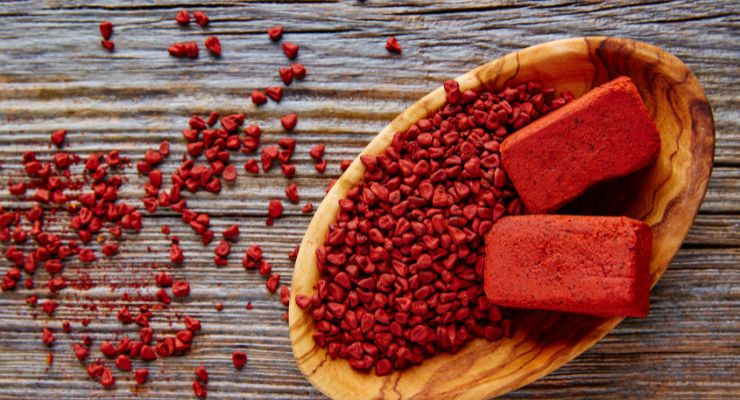Market Updates, Research
Geranylgeraniol Supplementation May Benefit Men With Low Testosterone
A study found that an eight-week treatment regimen with the annatto-derived ingredient led to significant increases in testosterone in the participants.

By: Mike Montemarano
Associate Editor, Nutraceuticals World

GG-gold, a branded, annatto-derived geranylgeraniol ingredient by American River Nutrition, may significantly increase total, free, and bioavailable testosterone in men with low testosterone, according to a new human clinical study.
One fourth of men over the age of 30 are estimated to have low testosterone levels, which can lead to fertility issues, sexual dysfunction, type 2 diabetes, cardiovascular disease risk, fat accumulation, loss of muscle mass, and loss of energy.
Geranylgeraniol is an endogenous nutrient which synthesizes CoQ10, vitamin K2, and skeletal muscle proteins, and regulates testosterone production and its precursor, progesterone. Production of it declines naturally over the life span and is inhibited by drugs like statins and bisphosphonates. Replenishing natural levels of geranylgeraniol may help to protect from age-related physical decline, maintain structural bone support, and reduce skeletal muscle fatigue in the body, according to American River Nutrition.
The findings were achieved by a team of researchers at Applied Science and Performance Institute, and published in Nutraceuticals.
Study Details
In the eight-week study, 66 healthy subjects between the ages of 30 and 49 took GG-Gold at doses of 150 mg per day for four weeks, then at 300 mg for the rest of the treatment period, which led to increases in testosterone levels. The study was the first of its kind to evaluate interactions between geranylgeraniol and hormone levels in healthy men and women.
Blood chemistry measurements supported the safety profile of geranylgeraniol, as well as its impact on red and white blood cell counts, liver and kidney function, and measures of muscle, lung, and pancreas. There were no significant changes in overall endocrine or hormonal functions, and only a subgroup of men whose testosterone fell into a range of less than 700 ng/dL saw increases in total, free, and bioavailable testosterone, but 7.5%, 15%, and 14.8%, respectively. Meanwhile, men with low testosterone in the placebo group saw decreases in all three of these levels.
“GG supplementation may be beneficial for testosterone enhancement in male populations subject to low testosterone,” the authors concluded.
Barrie Tan, president of Ameircan River Nutrition, said that the company is proud of its GG nutrient discovery and is eager to share safety data from a pre-clinical study on the ingredient.
“The significance of GG to raise testosterone in certain healthy men is made more remarkable in comparison to the drop within the placebo group,” Tan said. “GG’s ability to increase testosterone in men corroborates well with its support for CoQ10, MK4, and skeletal muscle. We look forward to sharing more on this ongoing research soon.”


